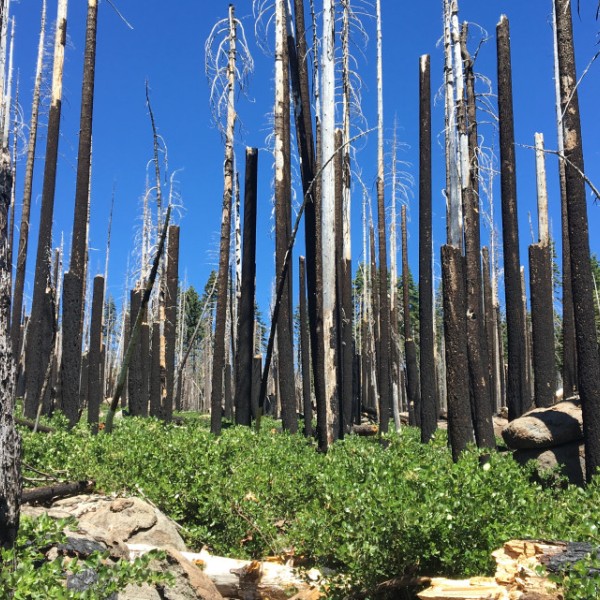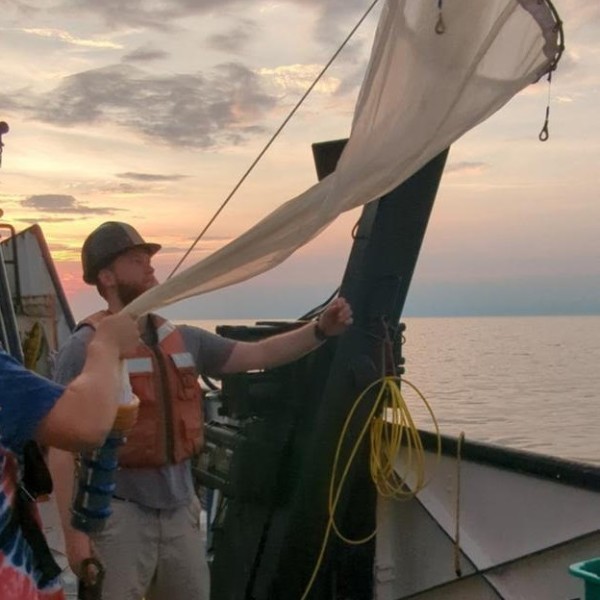What motivated you to start doing research in this field?
I’ve known about climate change since I was pretty small. I think I first read about it in a newspaper when I was 9 or 10 years old, but it just seemed like too big of a problem to tackle. Then Hurricane Katrina happened when I was a graduate student at Cornell, and it really opened my eyes to what the future might look like if climate change wasn’t addressed. I figured that I might as well start somewhere, and for me, that meant focusing on building a sustainable energy infrastructure.
Tell us about the impact you hope to achieve from your work.
I want us to build a sustainable energy infrastructure that can deliver, on average, an “American amount” of power to everyone alive on Earth by the end of the century—without polluting the atmosphere with CO2 or degrading the environment.
Basically, we’re talking about a power consumption of 10 kilowatts per person (corresponding to an annual energy consumption of 87,600 kilowatt-hours). If we use the UN’s estimate that the global population will be 11 billion in 2100, then that totals 100 terawatts for the world (or 876 trillion kilowatt-hours).
Even though this is six times the world’s current power usage, my lab’s underlying thesis is that biology can solve a lot of the problems that this challenge creates.
Most of what scientists know about biology relates to medicine, but we know, in broad brush strokes, that biology can likely solve a lot of problems in sustainable energy too. Right now my lab is trying to figure out the genetic code of exotic organisms with a technology that we invented (called Knockout Sudoku), so we can apply those lessons to solve problems in sustainable energy.
"I want us to build a sustainable energy infrastructure that can deliver, on average, an “American amount” of power to everyone alive on Earth by the end of the century—without polluting the atmosphere with CO2 or degrading the environment." -Buz Barstow
Pre-pandemic, what did a typical day in the lab look like for you?
I hate to say it, but I can’t actually remember. It was always a bit of a rollercoaster, and no day really looked like much like another. I feel like the lockdown gave me a big chance to calm down and focus.
How did your lab adapt to the remote work situation?
We were very lucky that we could continue some work. We had a lot of data from experiments that needed to be analyzed and turned into papers. Also, Alexa Schmitz, a postdoc, and Brooke Pian, a lab technician, did a lot of work just prior to the shutdown to collect data and send samples for analysis.
We all borrowed things that would make working at home easier like computers, office chairs and large displays. I have largely emptied my office and brought it home. Actually, I’ve only personally been in my building twice since the lockdown, and only to collect books and notebooks.
The lockdown has given us a lot of opportunity for self-reflection. It definitely gave me a lot more time to think about data that we had, and I think that the papers I wrote were a lot better because I had lots of quiet time. I’m also starting to realize that I’m a lot more introverted than I thought that I was, as I really gain energy from being largely left alone.
On a different note, I think that a major contributor to the mental health crisis in science is that it simply consumes your entire life. But if we can learn to let it go and just ‘go home,’ I think we might actually do a lot better.
That all being said, I think that some members of my lab did suffer from the lack of social contact, and we’re all really glad to be back.






